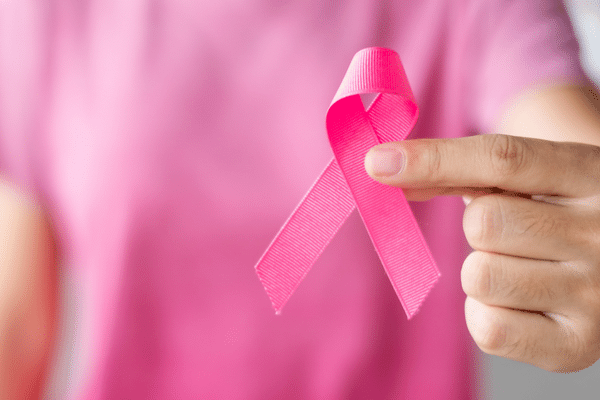|
|
Last Modified on Oct 09, 2024
Imagine the thoughts and feelings you would experience if you were to receive a cancer diagnosis. Maybe you don’t have to imagine anything if you’ve already gone through it. Cancer is a word that none of us ever want to hear. But if we do, we want to know all we can learn about our diagnosis as well as what we can do about it. What if you or a loved one has received a cancer misdiagnosis? Had you even considered it a possibility?
Imagine receiving a cancer diagnosis only to learn later, possibly much later, that you don’t have cancer. On the flip side – imagine learning about a cancer diagnosis you were originally told was NOT cancer. You could have gone years not treating something that could have been treated and reduced or even cured. Instead, the cancer could have gotten worse and may now be untreatable.
What do you do if you find yourself in one of the situations mentioned above? Are there any resources or places you can turn to? Are legal options your only choice? How do you move forward?
How Does A Cancer Misdiagnosis Happen?
You may be wondering how a cancer misdiagnosis can even happen in the first place. The truth is, it can happen more frequently than you may imagine. Some cancers are more difficult to diagnose or are rarer than others and may have been missed. Sometimes your physician may not see cancer cells that are right in front of them. Then there are infections that can appear like different types of cancer, leading to a misdiagnosis.
Cancer can be challenging to diagnose and treat, and while physicians rely on pathology reports and blood work for added information, those results aren’t always as cut and dry as we think. As you can see, there are all kinds of opportunities for error.
What to Do After a Cancer Misdiagnosis
A cancer diagnosis is a big deal. It affects not only you but your family and friends and those you work with and interact with daily. After receiving a cancer diagnosis, it’s soon very apparent that you will be dealing with more than just the physical aspect of the disease. Emotional, psychological, and even financial hardships are a daily reminder of what you’re dealing with.
Whether you’re a patient who failed to receive a cancer diagnosis or someone who received an incorrect cancer diagnosis, the road to recovery in all aspects can be significant. This is where asking for help is vital to your successful recovery.
Seeking Support
Seeking support and looking for resources to help you move forward with a delayed cancer diagnosis or dealing with the aftermath of an incorrect cancer diagnosis can often make or break your outcome. Everyone needs support at some time or another, and embracing that sooner than later will put you at an advantage.
Emotional and Psychological Support – The emotions Involved with a cancer diagnosis can be completely devastating. Often any kind of medical diagnosis is a mental and emotional battle as much as it is a physical one. Seeking support through therapy one-on-one or in a group format is extremely helpful for many. Finding encouragement through family and friends can also help you sort through your feelings and cope with all that you are experiencing.
It’s important to take care of yourself mentally and emotionally throughout a cancer misdiagnosis of any kind. If certain resources or support are helpful in the beginning but are not serving you still, make changes and do what you need to do to work through all that you are feeling and thinking.
Financial Support – Treating cancer is not a cheap endeavor. In fact, it can be completely devastating financially for individuals and families. If you have been going through unnecessary treatments because of a misdiagnosis, this can be Infuriating and financially damaging.
If you have been misdiagnosed, financial assistance programs can help you and your family with the cost of cancer treatment. Look into federal and state programs, talk to your healthcare provider about options as well as ask your medical insurance company for additional information. There are resources available, many of which are not taken advantage of when they could be.
Should Legal Action Be Taken?
Many people are unsure of whether legal action should or could be taken in their situation. If you would like to at least find out what legal options you have, it’s best to do so as soon as you can. Depending on where you live, there will be a limit, also known as a statute of limitations, when legal action can take place. You don’t want to cheat yourself out of a legal case from the beginning just because you didn’t act quickly enough.
A cancer misdiagnosis can be at the fault of a medical provider, a hospital, or more. Holding the “at fault” party responsible for a misdiagnosis is essential in recovering damages, including medical expenses, pain and suffering, and more. An experienced legal team will be able to talk with you and advise you about the possibility of a successful lawsuit.
Hire Experience
If you or a loved one has been involved in a cancer misdiagnosis, the burden is most likely weighty on all fronts. A legal case can feel so overwhelming to even think about that many are tempted to avoid a lawsuit altogether just to save themselves from added stress, time, and resources that they just don’t feel like they have to give anymore.
The attorney team of Gainsburgh, Benjamin, David, Meunier & Warshauer, L.L.C. wants you to believe otherwise. Taking the day-to-day legal burdens away from our clients and adding our expertise and skills to make your cancer misdiagnosis lawsuit successful is what we do best. Don’t leave such a complex legal suit to a sub-par attorney. Put your trust in Gainsburgh, Benjamin, David, Meunier & Warshauer, L.L.C. today by calling (504) 522-2304 to schedule a free consultation.





